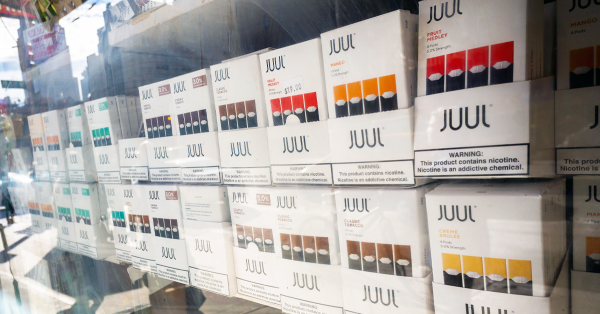Stryker Hip Injuries & Device Recall
Issue: Recalled Rejuvenate and ABG II hip implants
Lieff Cabraser represents hip replacement patients across America in lawsuits against Stryker to obtain just compensation for their pain, suffering, lost wages, and other losses from the failure of their Stryker hip implants. Our law firm has been recognized by U.S. News, Best Lawyers, and the National Law Journal as one of the top plaintiffs’ law firms in the nation.
What Is The Stryker Hip Recall Settlement?
On November 3, 2014, Stryker announced a settlement of the lawsuits involving patients whose Rejuvenate or ABG II hip replacement systems were revised prior to November 3, 2014. This settlement was valued at over $1 billion. Stryker’s liability is not capped. It is expected that the total amount of payments under the settlement will far exceed $1 billion dollars. Payments under the settlement program are projected for disbursement at the end of 2015.
Attorney Lexi Hazam Provides a 2015 Update on the Stryker Hip Recall Litigation
Howmedica Osteonics Corporation, which operates under the name of Stryker Orthopaedics, recalled the Stryker Rejuvenate Modular Primary Hip System and the Stryker ABG II modular neck hip system in the United States in June 2012. Stryker began selling these hip systems in late 2007.
Why Were These Stryker Hip Replacement Systems Recalled?
Physicians and health regulators have focused substantial attention on the dangers to patients from the release of tiny metallic particles from all-metal (also called metal-on-metal) hip implants.
Stryker’s Rejuvenate and ABG II modular-neck hip stem systems contain components made of chromium, cobalt, and titanium. Friction created by the normal movement of the components that make up Stryker hip replacement systems can release microscopic shavings and metal debris into the surrounding tissue and blood. This can lead to a condition called metallosis, which is characterized by painful, inflammatory reactions in the tissue and a high blood-metal count.
What Are The Symptoms of Patients Injured by The Recalled Stryker Hips?
Patients who have received Stryker’s Rejuvenate and ABG II hip systems should be aware of the symptoms which may indicate that their devices are not functioning properly. Common symptoms include:
- Regular and prolonged pain in the groin, hip, or leg;
- Swelling at or near the hip joint; or
- A limp or a change in walking ability.
In April 2012, Stryker issued an “Urgent Safety Alert” to surgeons for the two hip replacement systems. The alert listed “excessive metal debris and/or ion generation” as one of the safety risks to patients. According to Stryker’s Safety Alert, the following problems can result:
- Metallosis (release of metal ions into the tissue and bloodstream);
- Necrosis (premature tissue death);
- Osteolysis (bone dissolution); and
- Pain and loosening of the hip implant requiring revision surgery.
What Do The Lawsuits Against Stryker Charge?
Manufacturers of products are generally held to a basic duty of exercising care to prevent foreseeable injuries from the reasonable use of their products. In the case of medical devices, manufacturers owe a duty to patients to produce and sell products that are safe and effective.
The Stryker lawsuits charge that Stryker violated these basic duties. Stryker did not conduct any clinical testing on the safety and effectiveness of the Rejuvenate and ABG II hip systems before selling the devices. Both the Rejuvenate and ABG II devices are defective, the lawsuits allege, because the modular neck is prone to fretting, degradation, and fracture. Further, the lawsuits allege that Stryker knew or should have known that the Rejuvenate and AGB II hip systems were not safe for patients, yet Stryker continued to market and sell these products. The lawsuits filed by the Stryker hip patients seek compensation for their pain and suffering.
I Am Part of The Stryker Hip Replacement Settlement. What Compensation Am I Eligible to Receive Under The Settlement?
If you quality under the settlement, Stryker will provide a base payment of $300,000 to patients who received the Rejuvenate or ABG II hip systems and underwent revision surgery by November 3, 2014 to remove and replace the devices.
The base award may be adjusted upward or downward depending on certain factors. For example, payments will be increased for extraordinary medical injuries, such as multiple surgeries (re-revisions) or infections and other medical complications suffered as a result of revision surgery.
The deadline for eligible patients to submit their claim for payment under the settlement was March 2, 2015. The first payments under the settlement program are expected to begin in the Summer of 2015, with enhanced payments projected for disbursement at the end of 2015 and early 2016.
If your Stryker Rejuvenate or ABG II hip system failed and you underwent revision surgery to replace it after November 3, 2014, or if it fails in the future, you are not eligible for payment under the settlement announced last year.
However, you retain your rights to file a lawsuit against Stryker and seek compensation for the injuries you suffered as result of the implant failing. Keep in mind though, the statute of limitations (the deadline to file a lawsuit) varies by state and may preclude you from filing a claim if you do not contact an attorney promptly.
Civil Litigation News
Douglas Cuthbertson to Discuss “Consumer Data Privacy” at Upcoming NASCAT Annual Meeting
Lieff Cabraser partner Douglas Cuthbertson will be a featured speaker at the 2025 NASCAT annual meeting. Doug will be speaking on the
San Francisco Schools Receive Financial Boost From Settlement With JUUL
As reported by the S.F. Chronicle, the San Francisco Unified School District has been awarded a substantial $24.65
Final Approval Granted to Historic $235M Settlement with Altria in National JUUL Youth E-Cigarette Predatory Advertising, Addiction and Injury Litigation
On March 14, 2024, U.S. District Judge William Orrick of the Northern District of California issued an order granting final approval to a comprehensive
















